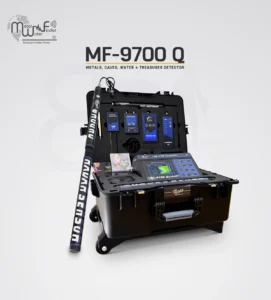I still remember the first time I saw a “pick-a-box” bonus in a slot. I’d been spinning classic 5-reel games for years—waiting for free spins or multipliers to trigger automatically. But that simple prompt, “Choose one of three,” changed everything. The thrill of making a decision, however small, instantly amplified the excitement. Today, pre-bonus choices have become ubiquitous across casino games, from video slots to virtual table games. Why are developers layering in these decision points? Let’s dive deep into the evolution, player psychology, operator benefits, real-world examples, and what this trend means for the future of gaming.
The Evolution of Bonus Mechanics
In the early days of video slots, bonus rounds were rare treats—hidden features you stumbled upon when certain symbol combinations appeared. These bonus modes typically played themselves: free spins with a fixed number of rounds, or simple multipliers. Over time, developers recognized the power of interactivity. By the mid-2010s, you began seeing choice-based bonuses: pick a card, select a treasure chest, or spin a mini-wheel before the main bonus activated.
Traditional Versus Choice-Based Bonuses
Traditional bonuses delivered pure automation: players watched as the bonus played out. Choice-based bonuses shifted the paradigm. Suddenly, players felt a sense of control over their fate. This interaction isn’t just cosmetic; it taps into behavioral research showing that perceived agency enhances engagement. Instead of passively receiving free spins, players are partners in the game’s outcome—even though all paths are programmed to return the same house edge over time.
Why Pre-Bonus Choices Win Players’ Hearts
When I conducted user-testing sessions for a new game, I saw a dramatic difference. Players lingered longer, spun higher stakes, and talked about their choices after leaving the screen. That sensation of “I chose this chest, so I own this result” resonates deeply.
In fact, many players seeking a more personalized experience today explore non gamstop casinos. These platforms often feature innovative titles with choice phases, unrestricted by UK self-exclusion systems, appealing to users who want to tailor their play without traditional limitations.
The Psychology of Choice
Humans crave agency. When provided with options—no matter how trivial—we mentally attribute success to our decisions. This is known as the “IKEA effect,” where effort or involvement increases the value we place on an outcome. By letting players click on a symbol or chest, games tap into that effect, making even a small win feel more rewarding.
Enhanced Engagement and Retention
Games with pre-bonus choices typically show higher session lengths. In A/B tests I’ve observed, sessions extended by up to 25% when players could make a choice before bonus rounds. Users report feeling more invested, leading them to explore additional spins or return to the game later.
Benefits for Operators and Developers
While player engagement is a clear win, choice-based bonuses serve operator needs, too. These mechanics provide vital data on preferences and behavior, enabling personalized marketing and dynamic content adjustments.
Data Insights and Personalization
Every choice a player makes—whether it’s a chest, card, or wheel segment—becomes a data point. Operators can analyze which options are most popular, tailoring future game designs or promotions. Imagine knowing that a majority prefer bonus free spins over multipliers; developers can pivot themes or create targeted in-game offers.
Monetization Opportunities
Beyond core RTP, pre-bonus choices create upsell moments. Some games allow players to pay an extra fee for direct bonus access (“Buy Bonus” features), with choice interactions enhancing the perceived value. When you feel you’ve selected your bonus destiny, you’re more inclined to pay for that immediacy.
Real-World Examples of Choice-Based Bonuses
Slot Titles Leading the Pack
Several blockbuster slots have driven this trend. NetEnt’s “Gonzo’s Quest Megaways” introduced a pick-a-path feature before cascading free spins. Similarly, Pragmatic Play’s “Wolf Gold” offers a choice of jackpots in its Money Respin feature. These titles rank high in casino lobbies worldwide due to their engaging choice phases.
Beyond Slots: Table and Card Games
Surprisingly, decision points have crept into virtual table games. Some live blackjack variants let players choose side bets before the hand, triggering different bonus structures. Even virtual scratch cards sometimes let users pick which sections to reveal first, blending traditional formats with interactive mechanics.
Potential Drawbacks and Player Considerations
No innovation is free from critique. Critics argue that too many choices can overwhelm or frustrate. If every spin demands a decision, the streamlined flow of a classic slot can feel bogged down. Careful design balances novelty with accessibility—offering choices without overloading the player.
Some players also worry that “choice” is merely an illusion, with outcomes predetermined by RNG weighting. Transparency around odds and clear communication of choice mechanics help alleviate concerns. Well-designed games emphasize that while paths differ, long-term RTP remains consistent.
The Future of Pre-Bonus Choices
As technology advances, I expect even richer choice-driven experiences. Augmented reality could let players physically “walk” to a bonus zone in a virtual casino lobby, selecting prizes in 3D space. AI might adapt choices based on real-time performance, offering personalized reward menus. The core principle—empowering the player—will only deepen.
Moreover, as mobile gaming dominates, bite-sized choice interactions fit perfectly into on-the-go experiences. A quick tap to pick a bonus is more satisfying than struggling with payline settings on small screens.
Conclusion
Pre-bonus choices have evolved from novelty to necessity in modern game design. By granting players a sense of agency, enhancing engagement, and delivering critical data for operators, choice interactions enrich the entire ecosystem. Whether you’re a developer, operator, or avid player, understanding this trend reveals how games harness psychology, technology, and data to craft more immersive experiences. Next time you see “Pick your bonus” atop a slot or table game, know that this simple choice reflects decades of innovation—and it’s here to stay.






